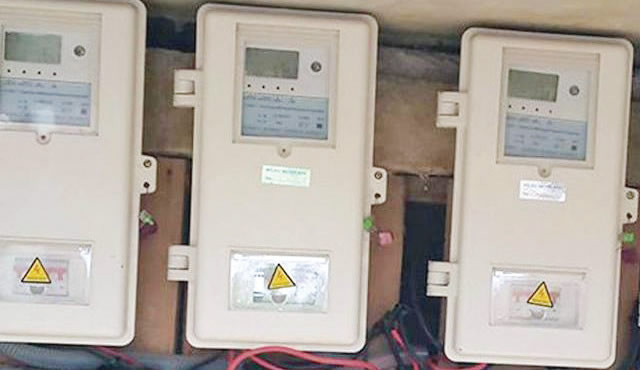FG Proposes Jail Term For Dollar Hoarders
The Federal Government has proposed an amendment to the Foreign-Exchange
Act to enable the imprisonment of anyone who holds foreign currencies,
especially the dollar, for more than 30 days.
This is the latest measure the government and the Central Bank of Nigeria are considering to stem the volatility in the exchange rate and bolster the ailing naira, according to a Bloomberg report.
In the new proposals, which were published on the website of the Nigerian Law Reform Commission last week, the CBN is seeking the power to control capital flows and stop people from taking forex out of the country.
According to the draft amendment of the Foreign Exchange Act, anybody holding dollars in cash for more than 30 days risk a jail term for as long as two years or a fine of 20 per cent of the amount.
Regulators should also be able to prevent money being repatriated “in accordance with the terms and conditions as may be prescribed by the central bank from time to time,” the draft states.
The existing law is “narrow in scope and prohibits the seizure, forfeiture or expropriation of imported money by the government without providing for exceptions,” it adds.
The amendments, according to the document, are necessary “for effective monitoring and control, and to ensure probity in foreign exchange transactions in Nigeria.”
The CBN has increased capital controls since the price of oil, Nigeria’s main foreign exchange earner, started crashing in the second half of 2014.
It had pegged the naira for 15 months until June this year, a move analysts blamed for causing investors to flee the country, the economy to contract in the first half of the year and the inflation rate to rise to an 11-year high.
The latest move will further worry foreign investors, according to a Lagos-based research and investment advisory firm, SBM Intelligence.
The Department of State Security officials had last week arrested some black market forex dealers for exchanging the naira at a rate weaker than 400 per dollar, compared with the existing street rate of around 460.
The naira-dollar official exchange rate, which analysts accused the CBN of still manipulating, is 315 against the greenback.
“The CBN wants to take its regulatory onus to frightening proportions,” analysts at SBM said in an e-mailed note in response to the new draft law.
“The move smacks of desperation and can only result in negative investor perception and capital flight,” they added.
The Acting Director, Corporate Communications, CBN, Mr. Isaac Okorafor, said the apex bank did not introduce the bill in a text message response to Bloomberg. He did not elaborate.
The Chief Executive Officer, Cowry Asset Management Limited, Mr. Johnson Chukwu, while reacting to the development said, “If it did not emanate from the CBN as claimed by its spokesman, it may have emanated from the Presidency or other sources. But the fact is that when you compel people not to hold dollars after stopping the use of naira debit cards abroad, you are discouraging people to bring in money into the country.
“You also push more people to the parallel market and create further gap between the official and black market exchange rates.”
Punch
This is the latest measure the government and the Central Bank of Nigeria are considering to stem the volatility in the exchange rate and bolster the ailing naira, according to a Bloomberg report.
In the new proposals, which were published on the website of the Nigerian Law Reform Commission last week, the CBN is seeking the power to control capital flows and stop people from taking forex out of the country.
According to the draft amendment of the Foreign Exchange Act, anybody holding dollars in cash for more than 30 days risk a jail term for as long as two years or a fine of 20 per cent of the amount.
Regulators should also be able to prevent money being repatriated “in accordance with the terms and conditions as may be prescribed by the central bank from time to time,” the draft states.
The existing law is “narrow in scope and prohibits the seizure, forfeiture or expropriation of imported money by the government without providing for exceptions,” it adds.
The amendments, according to the document, are necessary “for effective monitoring and control, and to ensure probity in foreign exchange transactions in Nigeria.”
The CBN has increased capital controls since the price of oil, Nigeria’s main foreign exchange earner, started crashing in the second half of 2014.
It had pegged the naira for 15 months until June this year, a move analysts blamed for causing investors to flee the country, the economy to contract in the first half of the year and the inflation rate to rise to an 11-year high.
The latest move will further worry foreign investors, according to a Lagos-based research and investment advisory firm, SBM Intelligence.
The Department of State Security officials had last week arrested some black market forex dealers for exchanging the naira at a rate weaker than 400 per dollar, compared with the existing street rate of around 460.
The naira-dollar official exchange rate, which analysts accused the CBN of still manipulating, is 315 against the greenback.
“The CBN wants to take its regulatory onus to frightening proportions,” analysts at SBM said in an e-mailed note in response to the new draft law.
“The move smacks of desperation and can only result in negative investor perception and capital flight,” they added.
The Acting Director, Corporate Communications, CBN, Mr. Isaac Okorafor, said the apex bank did not introduce the bill in a text message response to Bloomberg. He did not elaborate.
The Chief Executive Officer, Cowry Asset Management Limited, Mr. Johnson Chukwu, while reacting to the development said, “If it did not emanate from the CBN as claimed by its spokesman, it may have emanated from the Presidency or other sources. But the fact is that when you compel people not to hold dollars after stopping the use of naira debit cards abroad, you are discouraging people to bring in money into the country.
“You also push more people to the parallel market and create further gap between the official and black market exchange rates.”
Punch
Related Posts via Categories:
- NDDC to Create 6,300 Online Jobs for Niger Delta Youths
- Nickel Worth Billions of US Dollars Discovered in Northern Nigeria
- Dangote Launches Nigeria’s First Fintech Bank
- Naira Now N400 To One Dollar
- Private Transporters Unite to Grow Industry
Follow Us @ACKCITY On Twitter
BB: 7ABCA2A7
Channel Pin: C00352CD2,
WhatsApp: (234) 08105649346
Call: (234) 08105649346
E-mail: admin@ackcity.net
























No comments